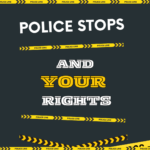Overview
The five parts of a first DUI case are: arrest, DMV hearing, court hearings, conviction, and sentencing. After an arrest, law enforcement sends notice of the arrest to the DMV on form DS 367. Once the DMV receives that form, they will take steps to suspend your license unless you contact them to contest the suspension within 10 days.
Law enforcement also sends a copy of their arrest report to local prosecutors. Prosecutors review the report and decide which criminal charges to file. If the defendant schedules a hearing within 10 days, the DMV mails a copy of the report to the defendant. The prosecutor also provides a copy of the report to the defendant’s attorney. However, the prosecutor usually does not provide the report until the first court date. Law enforcement does not provide a copy of the report to the defendant until the criminal case is resolved.
- DUI Investigation and Arrest
- DMV Hearing
- Court Hearings
- DUI Conviction
- DUI Sentencing
- Restricted License
DUI Investigation and Arrest
Officers usually pull DUI suspects over for poor driving or speeding. Once officers are close enough to smell alcohol or observe symptoms of alcohol (red eyes, slurred speech), they have enough suspicion to initiate a DUI Investigation.
Officers typically ask DUI suspects to perform Field Sobriety Tests during the DUI investigation. Common field sobriety tests include: walk the line, stand on one leg, follow the finger, and count to 30. Another common sobriety test is the preliminary alcohol screening device, which takes a breath sample. You may refuse all field sobriety tests. However, if you are on probation or parole, you must provide a breath or blood sample. Failure to do so could result in a probation or parole violation. In addition, refusing to perform field sobriety tests is considered evidence of guilt.
Once you are arrested, you must provide a sample of your blood, breath, or urine. The sample will be used to determine your blood alcohol content (BAC). If you refuse, the DMV could suspend your license for one year under Vehicle Code section 23612.
Documentation
When you are arrested, law enforcement will take your driver’s license and give you a temporary paper license that is good for 30 days. The temporary license has information on how to contact the DMV to prevent your license from being suspended. Law enforcement also provides a citation which includes a future court date, the charges, the arresting officer and their agency, and the citation number.
Charges
For a first DUI where no injury occurred, there are two charges on the citation. Both charges are misdemeanor DUI charges under sections and (a) and (b) Vehicle Code section 23152. Vehicle Code sections 23152(a) makes it illegal to drive “under the influence.” Vehicle Code section 23152(b) makes it illegal to drive with over .08% BAC. The prosecutor can charge the defendant with both counts. But the Court can only convict and sentence the defendant to one count. If law enforcement arrested the driver for driving under the influence of drugs, the prosecutor typically charges them with one count of violating (Vehicle Code section 23152(f)). If someone (other than the driver) is injured as a result of driving under the influence, the driver can be charged with felony driving under the influence under Vehicle Code section 23153.
DMV Hearing
You must contact the DMV and request a hearing within 10 days of your DUI arrest or the DMV will suspend your license. The issues at the DMV Hearing are 1) whether you were driving a vehicle; 2) whether your blood alcohol was over .08% when you were driving; 3) whether the officer had probable cause to arrest your for driving under the influence. You can contest the suspension of your license by presenting evidence, cross-examining witnesses, and testifying. The DMV typically conducts hearings over the phone. You can request an in-person hearing by contacting the DMV. It is extremely likely that the DMV will decide to suspend your driver’s license following that hearing.
License Suspension by DMV for DUI Arrest
For a first DUI, the DMV suspends the driver’s license for four months.
Court Hearings
If you bail out of jail or are released on your Own Recognizance, your first court date will be in a few weeks to several months down the road. The jail will give you paperwork with your court date when you are released. If you are not released from jail, you will have a court date within 3 days of your arrest. At that hearing, the Court will consider whether they will release you on your Own Recognizance, change your bail amount, or release you on pre-trial supervision. Under pre-trial supervision defendants are released from jail but must follow specific restrictions while their case is being resolved.
It is common for multiple Court Hearings to occur before the criminal case is resolved. The first hearing is called the arraignment. At the arraignment, the defendant enters a plea and is advised of the charges and their constitutional rights. If the defendant enters a not guilty plea, the case continues to pre-trial hearings, followed by trial. During the pre-trial phase of the case, the prosecutor and defense counsel discuss settlement of the case and prepare for trial.
Settling the Case
Before the first court date, the defendant can attend AA meetings, enroll in a recovery program, or wear a SCRAM alcohol monitor. These methods are regularly used and accepted by the Court. The Court and prosecutor typically see these as favorable factors when deciding the outcome of a case.
If your blood alcohol content was at or near .08%, the prosecutor may be willing to resolve your case for a wet and reckless, or dry and reckless charge.
Fighting the Case
You may fight your case by contesting the reason for a law enforcement stop, detention, arrest, and search. This is commonly referred to as a motion to suppress under Penal Code section 1538.5. You may also take your case to trial. At trial, the key issues will be 1) whether the defendant was the driver of the vehicle and 2) whether their blood alcohol was over .08% (or .01% if under 21) at the time they were driving.
DUI Conviction
A conviction occurs when the defendant enters a plea or is found guilty. A plea can be based on a plea agreement with the prosecutor or an “open” plea to the Court. Under an “open” plea, the defendant pleads to all charges and the Judge determines the sentence. At trial, the judge (court trial) or jurors (jury trial) determine whether the defendant is guilty.
DUI Sentencing
A defendant who enters a plea agreement is typically sentenced according to the terms of the plea deal. If a defendant is convicted by a judge or jury after a trial, the judge will determine the sentence. The judge also determines the sentence for defendants who plead “open” to the court. The judge may accept input on the sentence from the prosecutor, the defense attorney, the victims (if any), and any relevant agencies (IE: probation, law enforcement).
Maximum and Minimum Sentence
For a misdemeanor first DUI (without injury), the maximum sentence is 6 months in jail and a fine of $1,000. The minimum sentence is 96 hours in jail and a fine of $390. A misdemeanor first DUI with injury is punishable by a maximum fine of $1,000 and 90 days to one year in jail. The punishment for a first felony DUI is 16 months, 2 years, or 3 years in prison. The judge may suspend the jail or prison sentence and place the defendant on probation. This allows the defendant to avoid or limit their actual jail time, provided they comply with the terms of probation for the duration of probation (3-5 years).
Jail Time
Many counties in California allow a defendant to serve jail time via electronic monitoring or community service. These programs are typically referred to as “alternative custody” programs. However, some DUI convictions require actual jail time, even if the defendant is granted probation.
| Charge | Mandatory Jail Time |
| 1st DUI (Vehicle Code section 23538) | 0-48 hours |
| 1st DUI with injury (Vehicle Code section 23556) | 5 days |
Fees
In addition to fines, the court can order the defendant to pay additional fees, penalties, and assessments to the court. The total amount that the defendant has to pay to the court for a first DUI usually exceeds the $1,000 maximum stated in Vehicle Code section 23540. The exact amount of your fine will depend on the fines and fees in the county.
DUI Class
For a first DUI, the Court will order you to complete a DUI class that is at least 3 months long if your blood alcohol content was under .20%. If your blood alcohol content was over .20%, the Court will order a DUI class that is at least 9 months long. The exact length and type of DUI class varies depending on the county.
License Suspension by DMV for DUI Conviction
If the Court convicts you of a first DUI and your blood alcohol was under .20%, the DMV will suspend your license for 6 months. However, if the Court convicts you of a first DUI and your blood alcohol was over .20%, the DMV will suspend your license for 10 months. The suspension will run concurrent to the DMV suspension of your license, meaning the suspension lasts for no more than 6 to 10 months. If the Court convicts you of a DUI causing injury under Vehicle Code section 23153, the DMV will suspend your license for 1 year.
Restricted Licenses
In order to continue to drive during your suspension, you will need to obtain a restricted license from the DMV. There are two types of restricted licenses: ignition interlock device (breathalyzer); and restricted. Both types of restricted license require that you obtain an SR-22 from your insurance company, pay a fee to restore your license, and enroll in the appropriate DUI class. Learn more about restricted licenses here.













